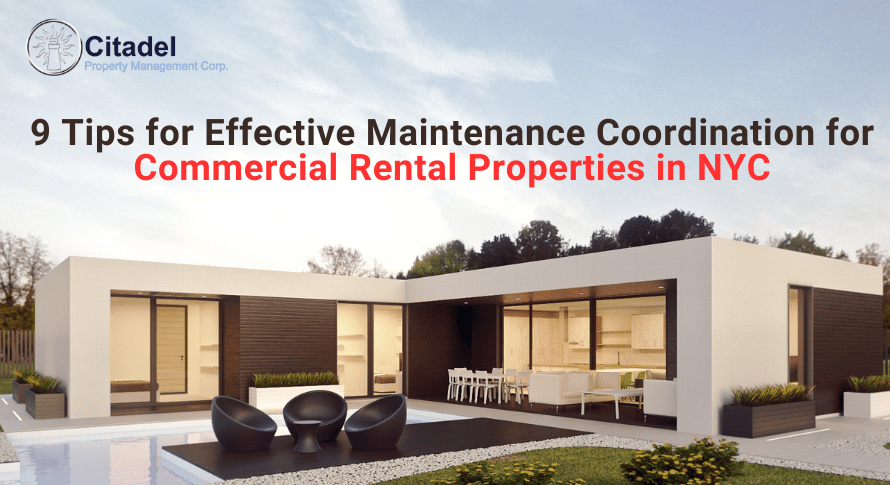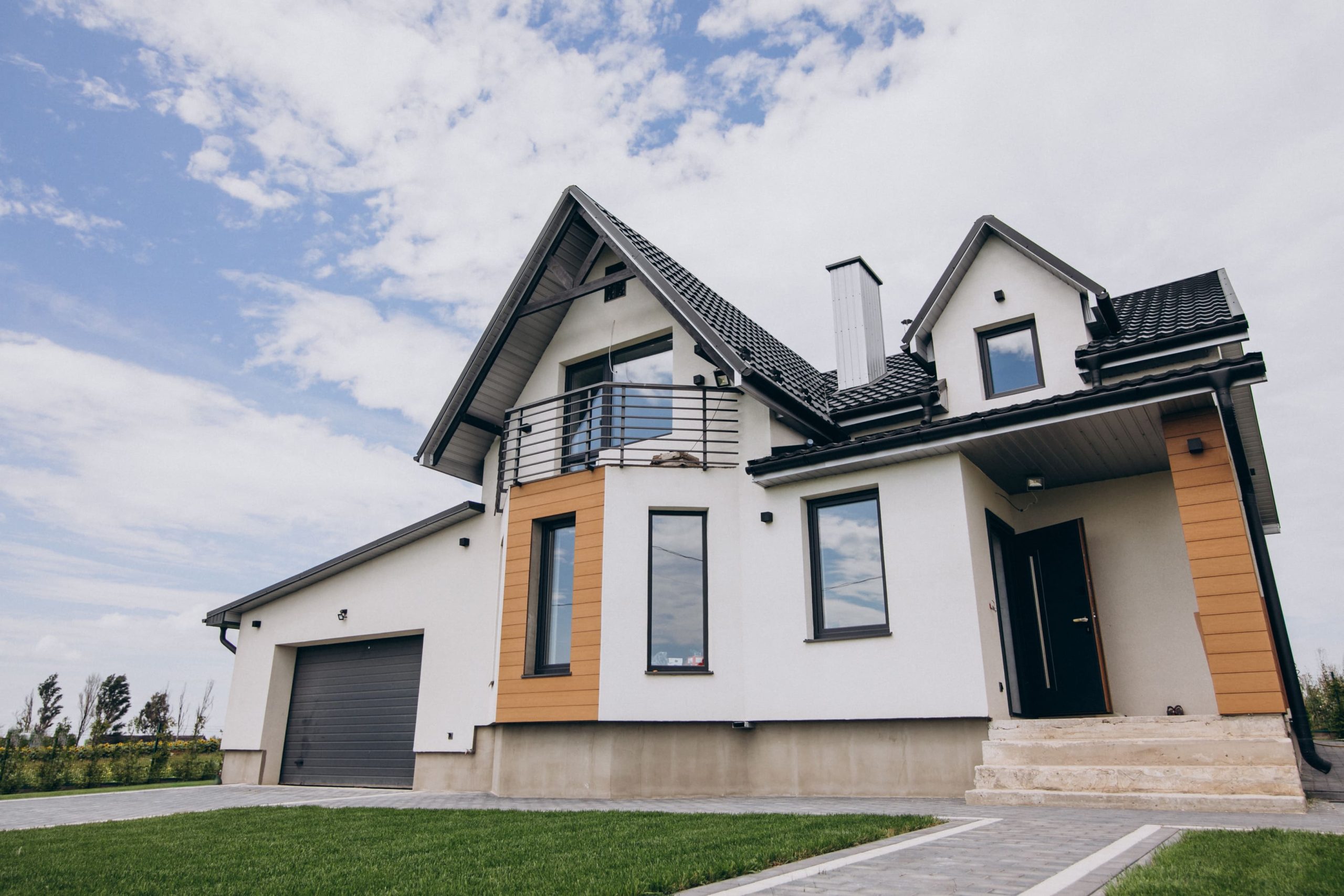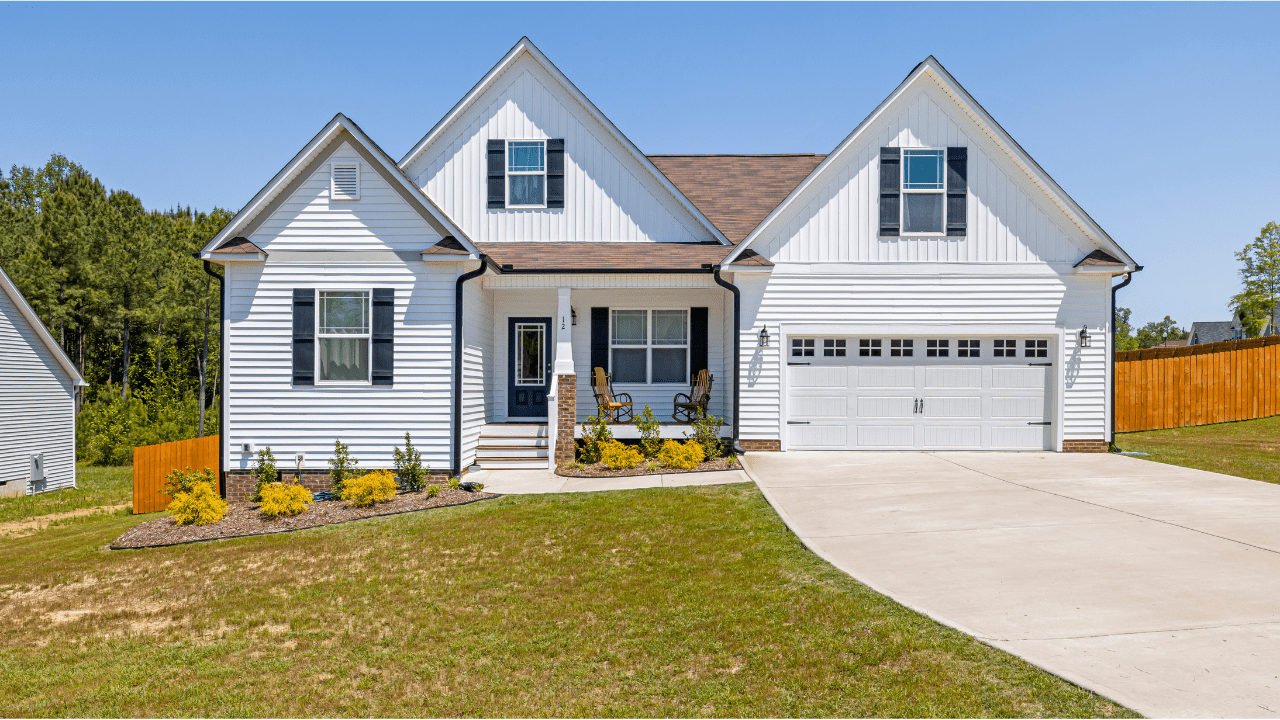Maintenance coordination for commercial rental properties is a crucial aspect of property management that can significantly impact tenant satisfaction, property value, and overall profitability. When executed efficiently, it ensures that the property remains well-maintained and minimizes downtime, which in turn leads to satisfied tenants and a positive reputation in the market.
Effective Maintenance Coordination for Commercial Rental Properties in NYC
In this guide, we will explore nine valuable tips for effective maintenance coordination in commercial rental properties.
1. Establish a Proactive Maintenance Plan
Proactivity is the key to minimizing unexpected issues and reducing long-term maintenance costs. Develop a comprehensive maintenance plan that outlines regular inspections, preventive maintenance tasks, and equipment servicing schedules. Having a well-structured plan in place helps you stay ahead of potential problems and ensures that maintenance tasks are systematically addressed.
2. Maintain Detailed Records
Accurate and organized record-keeping is essential for effective maintenance coordination. Maintain a database of all property equipment, including warranties, service history, and maintenance schedules. Additionally, keep records of all maintenance requests, work orders, and completed repairs. This information is invaluable for tracking expenses, ensuring compliance with warranties, and making data-driven decisions.
3. Implement a Maintenance Request System
To streamline the maintenance coordination process, establish a maintenance request system. This system should allow tenants to submit requests easily, provide details about the issue, and track the status of their requests. By providing a transparent and user-friendly interface, you empower tenants to report issues promptly and reduce communication delays.
4. Prioritize Urgent Repairs
Not all maintenance requests are equal. Some issues, such as plumbing leaks, electrical problems, or safety concerns, require immediate attention. Develop a clear system for prioritizing and categorizing maintenance requests to ensure that urgent repairs are addressed promptly. Timely responses to critical issues enhance tenant safety and satisfaction.
5. Select Reliable Contractors and Vendors
Your choice of contractors and vendors is critical to effective maintenance coordination. Partner with experienced, licensed, and insured professionals who have a reputation for reliability and quality work. Establish clear expectations, including response times and service standards, and maintain open lines of communication to ensure that they can be reached when needed.
6. Centralize Communication
Centralizing communication is essential for efficient maintenance coordination. Create a single point of contact for maintenance requests and inquiries. Whether it’s an in-house team member or a Bronx Property Management in New York software system, having a central hub for communication streamlines the process and reduces the risk of missed requests or miscommunication.
7. Embrace Property Management Software
Investing in property management software can be a game-changer for maintenance coordination. Modern property management software offers features such as maintenance request tracking, vendor management, and communication tools that can significantly enhance efficiency and organization. It enables real-time updates, automated reminders, and seamless coordination among all stakeholders.
8. Schedule Regular Inspections
Regular property inspections play a critical role in identifying maintenance needs before they become significant issues. Conduct routine inspections to assess the condition of the property, equipment, and common areas. By identifying problems early, you can plan for preventive maintenance and minimize disruptive, costly repairs.
9. Budget Wisely for Maintenance
Effective maintenance coordination requires adequate budgeting. Allocate funds for both planned maintenance and unforeseen repairs. Over time, establish a maintenance reserve fund to cover unexpected costs without straining the property’s financial stability. A well-managed budget ensures that maintenance needs are consistently met.
Maintaining Your Commercial Rental Property’s Competitive Edge
In the ever-evolving landscape of commercial real estate, maintaining a competitive edge is paramount to success. Effective maintenance coordination for commercial rental properties is not just about keeping the lights on and the plumbing in working order; it’s about ensuring that your property stands out in the market, attracts and retains quality tenants, and preserves its long-term value. Here, we delve deeper into the strategies and considerations that can help you maintain that competitive edge:
● Energy Efficiency and Sustainability
In today’s environmentally conscious world, tenants are increasingly looking for sustainable and energy-efficient properties. Coordinating maintenance activities to optimize energy efficiency can be a significant selling point. Consider investing in energy-efficient lighting, heating, and cooling systems. Regular maintenance and upgrades to these systems can lead to cost savings for both the property owner and the tenants.
Additionally, explore sustainable practices, such as waste reduction, recycling programs, and green landscaping. A property that embraces sustainability not only appeals to eco-conscious tenants but also reduces operational costs and positions your property as a forward-thinking, responsible choice.
● Technology Integration
The integration of smart technology is no longer a luxury; it’s becoming an expectation for many tenants. A well-coordinated approach to maintenance should include the installation and upkeep of smart building systems. This may include automated HVAC controls, keyless entry systems, security cameras, and energy management tools.
By leveraging technology, you can enhance security, improve the overall tenant experience, and remotely monitor and manage your property’s systems. This not only makes your property more attractive but also allows for quicker response times to maintenance issues.
● Aesthetic Appeal
A well-maintained property should not only function efficiently but also look appealing. Regular upkeep of landscaping, painting, signage, and common areas can create a positive first impression on potential tenants. A property that is aesthetically pleasing often commands higher rental rates and maintains its value over time.
Consider seasonal maintenance plans to ensure that landscaping and outdoor areas are always in their best condition. Implement a painting schedule to refresh exteriors and common spaces. Small details, such as clean and updated signage, can make a significant difference in the overall appeal of your property.
● Tenant Engagement
Engaging with your tenants in matters related to maintenance can foster positive relationships. Regularly seek feedback from tenants regarding maintenance and their overall experience with the property. Conduct surveys or establish open communication channels that allow tenants to express their concerns, preferences, and recommendations.
By actively involving tenants in the maintenance coordination process, you not only address their needs more effectively but also demonstrate your commitment to their satisfaction. Happy tenants are more likely to renew leases and become advocates for your property.
● Safety and Security
Safety and security are paramount for both commercial property owners and tenants. A well-coordinated maintenance plan should encompass regular safety inspections, including fire safety systems, emergency exits, and security measures. Ensure that all safety features and equipment are in compliance with local regulations and up to date.
Tenant safety is a top priority, and by investing in state-of-the-art security systems and well-maintained fire safety equipment, you create a secure environment that tenants can feel confident in. This not only safeguards their well-being but also protects your property’s reputation.
● Cost-Effective Maintenance
Effective maintenance coordination is not solely about spending money; it’s also about spending it wisely. Cost-effective maintenance strategies can lead to long-term savings. Regularly assess your maintenance budget to identify opportunities for cost reduction without compromising quality.
Consider long-term maintenance contracts that offer cost savings and predictability. Negotiate with vendors for competitive pricing, especially for essential services like HVAC maintenance or plumbing repairs. By managing your budget wisely, you can allocate funds strategically to areas that need attention without overspending.
Conclusion
Effective maintenance coordination for Commercial Rental Properties is the foundation of successful property management. It ensures that properties are well-maintained, tenants are satisfied, and long-term value is preserved. By proactively developing a maintenance plan, maintaining detailed records, and prioritizing urgent repairs, you can enhance your property’s overall maintenance strategy.
Additionally, a well-structured maintenance request system, reliable contractors, and centralized communication tools are essential for streamlined coordination. Embracing property management software can further optimize your efforts, offering a range of features to enhance efficiency and organization.
Regular property inspections, combined with wise budgeting, complete the picture of a comprehensive approach to maintenance coordination. When these elements work together, you can achieve a high standard of maintenance excellence in your commercial rental properties, ultimately benefiting both property owners and tenants.




